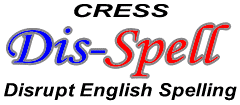Is learning to read like Mt. Everest? Yes, certainly. Not only do 25% of Americans never learn to read with functinal proficiency, but EVEN THE BEST READERS NEVER MASTER SPELLING ALL THE WORDS. The most advanced intellectuals still look up words. Spelling is a high mountain
Is CRESS trying to climb Mt. Everest? Many have worked on the reading problem for long and hard in various ways. They have helped young people work their way up the mountain of reading. Haven’t all the paths up the mountan been discovered and explored? How does CRESS get us up the hill?
CRESS recognizes and uses all the research that has gone before. The scientific trend in reading always includes phonemic awareness, and CRESS BUILDS ON PHONEMIC AWARENESS FROM START TO FINISH BUT CRUCIALLY ADDS A BASE CAMP UP THE MOUNTAIN. It’s EASY TO GET TO THE BASE CAMP, and once there, the view is so good some will feel fulfilled and may never want to go on with all their needs met. For those who wish to carry on to reading standard English spelling, that path is simplified, now above the clouds that made the paths so confusing. The climber can go where s/he likes in confidence of understanding how spelling works, without a feeling there is something wrong with them, or that they weren’t made for spelling, reading and education.
Phonemic awarness is the life blood of reading. Phonemic awareness is the bones and marrow of reading. The whole idea of our alphabetic writing systems is based on what was originally called the “phonetic principle”. All over the world humans have developed writing sytems based on the phonetic principle. Visit India, ask a Navaho, look at the syllabics and modern writing of the Inuit, look at Chinese complementing a system based on idea symbols, ideographs, with phonetic ones. Go where you want and you will find that human finds the same thing everywhere: phonemic principles of spelling.
So what the heck does CRESS add if so many researchers and so many human cultures have been pointing the same way up the mountain?
The idea is simple and is the essence of linguistic science. We can say the words of our language so we already know its sounds. All that is needed is a way to write each sound. If you can write each sound you can read or spell any word you know. That’s the whole story stop to finish. CRESS provides a single consistent never-changing way to write each sound.
If you show someone how to write each sound you have provided a base camp most of the way up the mountain of reading, writing, and spelling. They can read and write anything in CRESS. Software can translate CRESS to standard English spelling in both directions. English spelling is deeply entrenched with so much written so learners my choose to learn its complex patterns but this is immensely simplified by understanding the science underneath all the confusion. A huge benefit of CRESS is its ability to offer high self-esteem to those learning to read. The huge problems with learning to read English result from its own confusions, not from the ability of the learner. New learneres can get into education deeper and harder and faster without English spelling confusion making them feel there is something they cannot learn. The problem was never with the learner but with an absurd spelling system.
Up to base camp. CRESS IS THAT BASE CAMP. It has been carfully designed for easy learning that builds phonemic awareness in. It uses modern technology: computational linguistics, a form of AI to provide converters. Just a simple leg up to the base camp of CRESS provides much more beautiful horizons for the learner. And CRESS has designed some very helpful facilities for getting there, and settling there if desired.
That’s the nature of science. It lifts you up. But then you have new personal options how to proceed.
